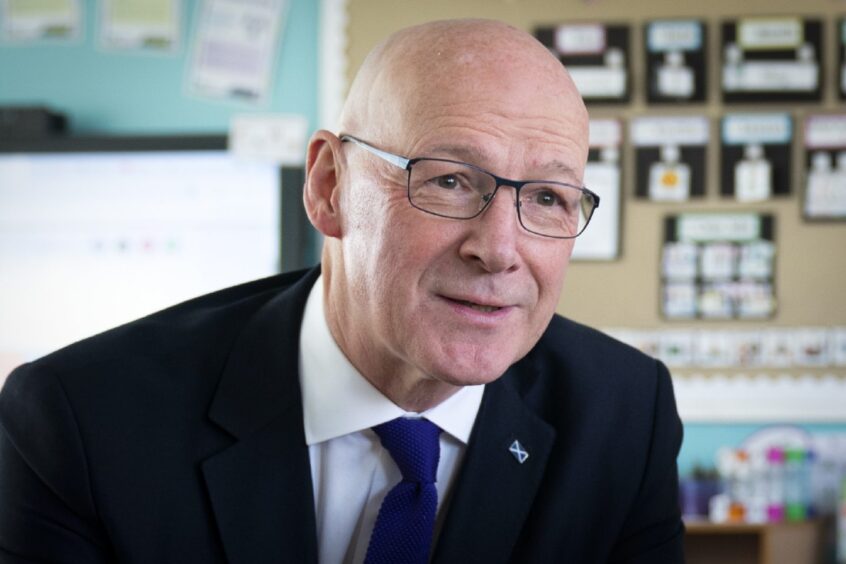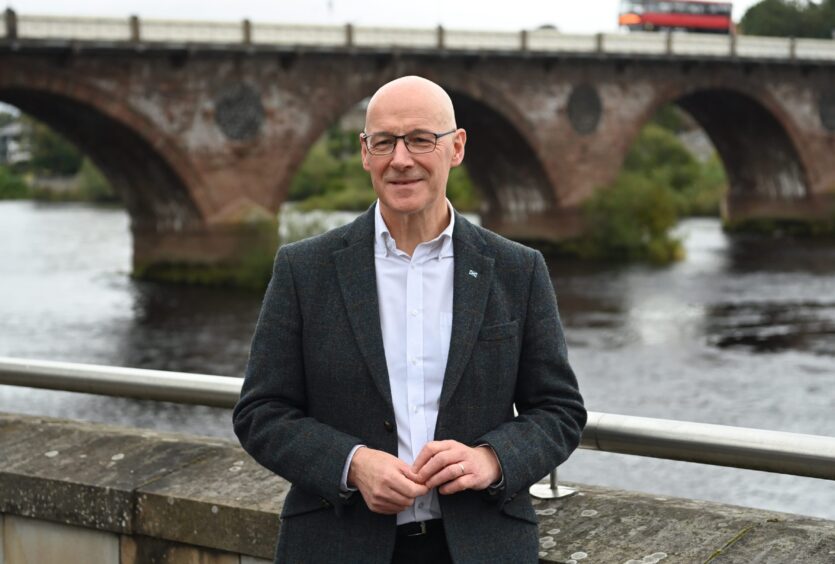As an MSP, some of the most difficult conversations I have had have been with constituents who are in great suffering towards the end of their lives – many of whom have made powerful cases to me for a change in the law around assisted dying.
Parliament is currently undertaking consideration of new legislation. It is a matter of the utmost seriousness and sensitivity with strong views and valid arguments on both sides.
This is the third time legislation on this issue has been voted on during my time in Parliament.
On both previous occasions, I voted against the bills – I disagreed with them in principle and did not believe there were sufficient safeguards built into the legislation.
‘It has been more difficult to reach my conclusion’
On this occasion, it has been much more difficult to reach my conclusion.
I believe the current Bill is much improved, which is a result of the careful and diligent work of Liam McArthur MSP who has introduced it.
I also want to put on record my gratitude to the members of parliament’s Health, Social Care and Sport Committee who have heard the arguments, interrogated them and produced a report which dispassionately informs MSPs.
The committee members have undertaken an outstanding service to parliament in scrutinising the legislation and I commend them for it.
Before the vote next week, I wanted to let readers of The Courier know directly what conclusion I have come to, and the reasons I have reached it.
Crucially, I want to be clear that on this issue, all MSPs have a free vote – and I have the same one vote on the issue as my colleagues.
I am not setting out my view to seek to influence anyone else’s vote – I am simply conscious that my constituents in Perthshire North have the right to hear how their MSP is voting and why.
I am also conscious that many people want to know the view of their first minister.
But I, as an individual, have come to the conclusion that I cannot support the Bill and will be voting against it.
Why I am voting against this Bill
There are three reasons why. Firstly, I am concerned that the Bill would fundamentally alter the relationship between patients and clinicians.
In my view, there is a real danger that we risk undermining the role that is performed by medical professionals in protecting and enhancing human life.
If any possibility or indeed obligation is applied to clinicians to advise patients about assisted dying, my view is that the relationship between doctor and patient would be changed irrevocably and detrimentally.
Secondly, I am also concerned that those who are vulnerable in our society and who may consider themselves as a burden to their families or to the state may feel undue pressure to end their life prematurely.
I have read carefully the views of many individuals and organisations on this point and I can see no means of avoiding such a situation emerging in relation to the Bill.
And lastly, as much as I recognise the efforts to tightly define the Bill, if this legislation is passed, I am not sufficiently confident that there will be no further developments through the judicial process that could see the provisions of the Bill extended – essentially taking in broader circumstances that would in effect go further than Parliament intends.
I would not like to see such a situation develop.
‘This is not a decision to which I have come easily’
Those are the reasons why I will not be able to support the Bill when parliament votes next week. However, this is not a decision to which I have come easily.
I have listened to cases of great suffering recounted to me by the loved ones of constituents of mine who suffered terribly at the end of their lives.
They have asked me to support this Bill to ensure other people do not suffer as their loved ones suffered. And I am sorry that I cannot respond positively to the pleas of these individuals, for whom I have the greatest respect.
It is that concept of suffering which they raised which has weighed heavily on me as I came to my conclusion – and, frankly, it is the suffering of individuals that could have resulted in me being persuaded to support the Bill.
But what I take away from that is that I, as first minister, have an obligation to ensure that people are supported during end of life care to the greatest extent possible in order to alleviate that suffering.
Improving end of life care a matter government will take forward
That is an obligation which I take incredibly seriously and which will be a matter my government will take forward, regardless of whether this legislation passes or not.
I understand the strong feelings on this subject on both sides, and I am immensely grateful to all of those who have made their views known to me as I have come to my conclusions.
But again I stress that on this issue, I have only one vote.
Other MSPs are coming to their own conclusions, and from everything I have seen on this debate thus far, it is clear to me that everyone – no matter their view – is coming to this incredibly difficult and sensitive debate with the right intentions.
And I hope that my constituents and people across Scotland will be reassured that no matter the view parliament ultimately comes to, this issue has been treated with the seriousness it deserves.
John Swinney is the MSP for Perthshire North and the First Minister of Scotland.













Conversation